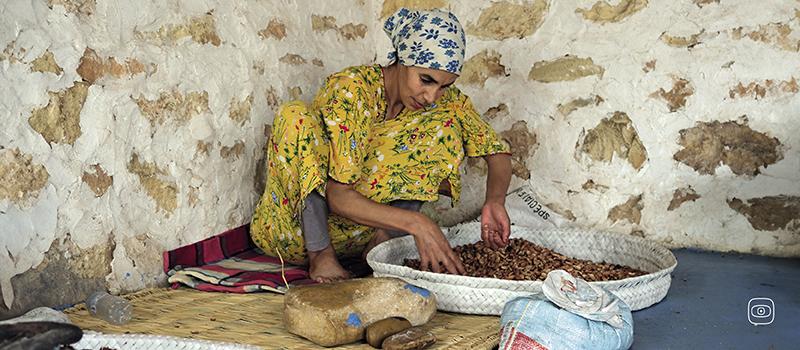The argan tree is primarily found in the Sous Valley in Morocco. Traditionally, the Berber people used its oil for food and beauty products. UNESCO has recognised the cultural value of the practices and knowledge concerning the argan tree.
As demand for the oil increased outside Morocco, argan cooperatives were established to enable rural women to receive a fair price for their work. However, market pressures have led to many closures, with others struggling to survive. Climate change has impacted the harvest and quality of the fruit; even the hardiest of these trees are struggling with drought, and over-harvesting is exacerbating the problem.
This team of investigative journalists set out to determine the extent to which Berber women, the custodians of knowledge about the argan tree and oil, have been pushed to the margins, and to find out why.
The investigation employed a comprehensive methodology, starting with extensive fact-finding through academic studies, NGO reports, and discussions with journalists. The journalists then explored supply chains, identifying major companies and analyzing their sustainability reports. An on-the-ground trip to Morocco involved visiting cooperatives, interviewing women farmers, and observing tree conditions. The journalists captured photographs and synthesized their research into a detailed report highlighting key insights.
Photo: A woman crushes argan nuts by hand to retrieve the precious kernel, Co-op Ayadi Chiadma, Morocco. Photograph by Juliet Ferguson



